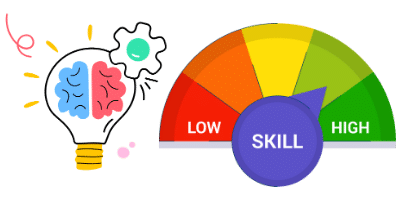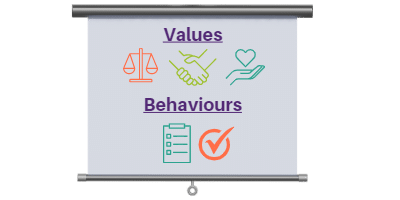Many modern workplaces are experiencing positive changes: the percentage of UK businesses under employee ownership is growing, successful trials of shortened working weeks are increasing productivity and flexible working policies are improving work/life balances worldwide.
Alongside these improvements, more effort than ever is going into ensuring workplaces offer fair and equal opportunities to all people, with increasing numbers of employers waking up to the fact that, unfortunately, this isn’t a default position or something that happens by itself. Instead, achieving it requires planning, focus and commitment from the most senior levels of leadership, down.
Within any organisational planning, particularly that which informs policies and procedures, it is natural to expect some structure. In this area, the acronym EDI (Equality, Diversity & Inclusion/Inclusivity) has emerged as a popular summary of the places that organisations must focus their efforts and in which employees look for positive changes and consistency.
More recently, however, the National Centre for Diversity has produced an expanded acronym – FREDIE®. You might have wondered what it stands for and how its different elements relate to the day-to-day operations of a modern organisation.

Although FREDIE®should run through everything an organisation does and permeate its day-to-day operations, we have focused on four areas, to demonstrate how it can be brought to life as well as how it creates value. These are excellent places for senior leaders to start assessing, reforming or adding some structure to their approach.
Learning and Development

The focus here is to ensure that opportunities to learn alongside or as part of work are accessible to everyone. For example, this could mean that the assessment process informing ‘talent management’ or ‘high potential’ programmes are ‘blinded’, so the unconscious biases of the panel are removed from the equation. It could also mean that Training/Learning Needs Analysis, a vital part of L&D responsibility, are adapted or updated to ensure they ignore the characteristics of the employees.
Outside of personal characteristics, this could mean that access to career development support is not limited to those in certain roles or functions, or that training budgets are spread around different organisational functions in a fair way, resulting from an objective and carefully considered decision making process.
Values and Behaviours

More and more organisations are defining a set of values and making clear the behaviours that embody them. The first five initials of FREDIE® cover a lot of the areas that we often see reflected in the core values of our learning partners and customers, both in defining the purpose of the organisation and shaping its working culture. It could be, for example, that the organisation sees Equality as a core value, and expects employees to treat their colleagues and customers with Respect in order to bring this about.
The final area – Engagement – is something that values and behaviours are intended to bring about. Workers are typically more engaged with employers that have defined their values because this allows them to choose an employer that aligns to their own principles. Furthermore, some of the most powerful and successful company values are ‘crowdsourced’ i.e., produced in consultation with the workforce – what greater catalyst for engaging employees with their work, than letting them contribute to a distilled definition of why they do it and why it should be done a certain way?
Recruitment and Promotion

Beyond the legal obligation of eliminating discrimination, HR and Learning/Organisational Development teams can unlock a range of benefits by helping their organisation to recruit and maintain a diverse workforce. Research shows that improvements in innovation, creative thinking and problem solving all go hand-in-hand with workplace diversity. It is better for all workplace decision-making, for example, to be objective – so giving people these skills for their people-based decisions can bring about wider benefits as well.
Perhaps nowhere is the accountability that organisations have to avoid discrimination more relevant that in choosing who they hire and promote. It is perfectly natural for human beings to apply bias to every decision to make – positive or negative attitudes towards certain things are an ordinary function of the brain and far from a moral failing. The onus is on organisations to ensure that these biases do not affect their employees’ decisions in a way that disadvantages particular groups of people. This comes from training and learning support giving them the knowledge and skills to identify their biases in order to mitigate their effects.
Supply Chains and Partnerships

Almost every organisation will have a supply chain of some description, and many will have partners within and outside of their sector, who’s interests and priorities align in some way. Their ability to influence the behaviour and actions of these businesses will vary widely, but, increasingly, firms are being more selective over the companies they work and partner with and are proactively looking them to demonstrate a shared importance of the FREDIE® areas.
Any of its elements may now factor into purchase or partnership decision making in the business-to-business world. Long-term and/or high value contracts can now require the regular reporting and self-assessment of performance and efforts around, for example, workforce diversity or gender pay equality from the supplier to the buyer. It’s not unheard of for contract KPIs to include elements of FREDIE®, making them as much an operational issue as things like product quality or customer service.
If you are considering training and learning support that can help your organisation and workforce to make strides in any area of FREDIE®, or ensure that efforts are coming from a place of thorough knowledge and understanding, Eliesha can assist with specialist workshops delivered by subject matter experts, including:
- Managing and Leading Inclusively
- Respect at Work
- Race, Equality and Anti-Racism
- Equality, Diversity & Inclusion Awareness
- Championship
- Unconscious Bias
- Religion and Belief
- Sex, Gender and Personal Circumstances
- Disability Awareness
- Transgender Awareness
- Neurodiversity Awareness
To tell us about your requirement and arrange an informal, exploratory chat about them, or to receive any specific course outlines from the list above, send us an enquiry or an email now.
FREDIE® is a registered trademark of the National Centre for Diversity.